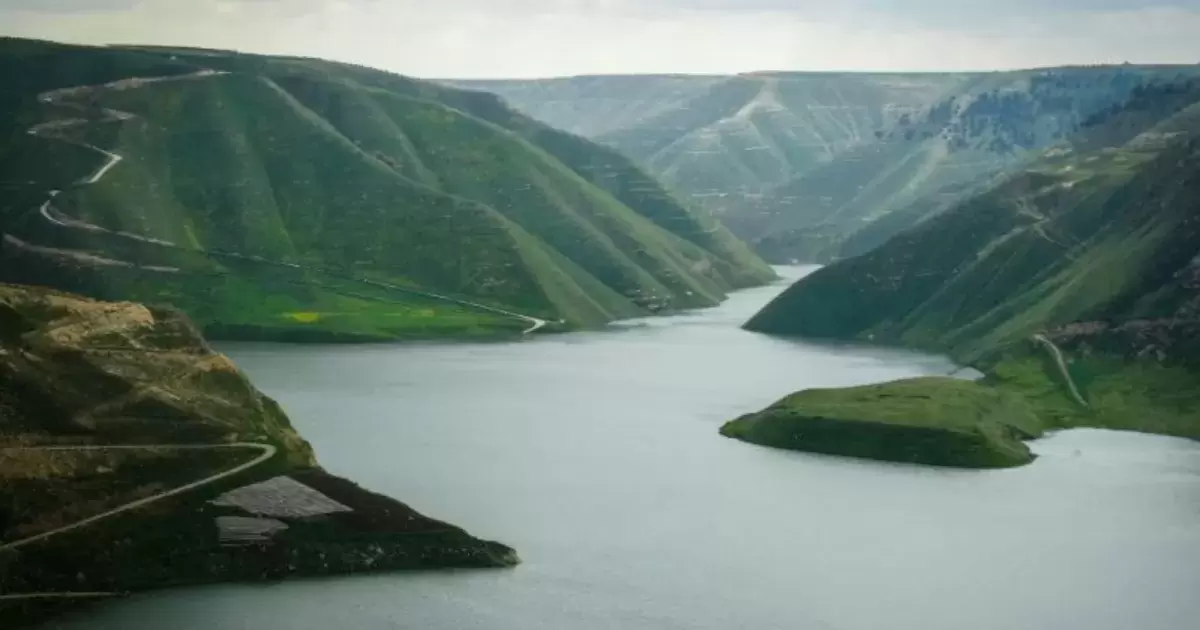
Israel's Occupation Of The Yarmouk Basin And Unity Dam: Threats To Jordan's Water Security
Israeli control included the towns of Al-Baath, Khan Arnabeh, and Qatana, in addition to the Syrian side of Mount Hermon, providing Israel with a strategic position overlooking Damascus.
Israeli Control over Water Resources in SyriaThe Yarmouk Basin area is of great strategic importance in the western countryside of Daraa province in southern Syria. The basin forms part of the Yarmouk River Valley, one of the largest tributaries of the Jordan River. This area is not just a geographical passage but a crucial intersection of water, agricultural, and security interests in the region, making it a constant point of contention among competing parties, especially with Israel's repeated attempts to control parts of it.
Impact of Israeli Control on JordanIsrael's control over the Yarmouk Basin and Unity Dam has profound implications for Jordan's water security, which already suffers from chronic water scarcity. This control gives Israel the ability to regulate the flow of water to Jordan, exacerbating the water crisis in the country. Jordan heavily relies on the waters of the Yarmouk River to meet its drinking and agricultural needs, and any change in the flow of this water could worsen living and economic conditions in the country.
Political and Economic DimensionsThe control of water resources is part of a broader Israeli strategy to strengthen its influence in the region. This step comes at a time when the Middle East is witnessing significant political changes, with the collapse of the Assad regime and increasing regional tensions. Control over water provides Israel with a powerful leverage that can be used in political and economic negotiations with neighboring countries, including Jordan and Syria.
Dr. Munther Haddadin, former Jordanian Minister of Water, stated that the arrival of the Israeli army at the "Unity Dam," shared between Jordan and Syria, does not pose a threat to Jordan's water security.
Dr. Haddadin emphasized that the real threat facing the region comes from the current Israeli expansion in all directions, including the occupation of Syrian lands, stressing that these Israeli violations, which he described as "a cancer that must be eradicated," should not be tolerated.
Earlier, the Syrian Observatory, which documents events in Syria, confirmed that Israeli forces had entered the village of Kouia and the historic Unity Dam near the Syrian-Jordanian border and positioned themselves in strategic locations after warning the residents to surrender weapons in the area.
The Unity Dam is located on the Yarmouk River, which forms the Jordanian-Syrian border, in northern Jordan. The construction of the dam began in 2003, and water storage in the dam's lake began in 2006. It provides Jordan with 30 million cubic meters of water for agricultural purposes and 50 million cubic meters for domestic use in the capital, Amman.
Dr. Haddadin also noted that the Israeli army has been present on the other bank of the Yarmouk River since the occupation of the Syrian Golan Heights, and this presence has not threatened Jordan's water security, reaffirming that Jordan, under the peace treaty with Israel, has secured its share of the Yarmouk River waters.
He further explained that the threat facing Arab countries in general, not just their water resources, is the current Israeli expansion in many Arab countries, likening Israeli violations of Arab lands to cancer that must be faced with firmness and not ignored.
Regarding cooperation between Jordan and the new regime in Syria on water issues, Haddadin mentioned that it is premature to judge the nature of these relations at this time until the new regime's orientations in Damascus become clear.
It is worth noting that the current Israeli incursions into Syrian lands adjacent to the Jordanian border, which have reached the Unity Dam on the Syrian side, have raised concerns about the security implications of these movements for Jordan's water security, especially given the significant importance of the dam to Jordan, as it constitutes a lifeline for Jordanians.
Jordan faces a water deficit in the summer amounting to about 450 million cubic metres annually, while its need is estimated at one and a half billion cubic metres annually, of which one billion and one hundred million are available.

Legal Disclaimer:
MENAFN provides the
information “as is” without warranty of any kind. We do not accept
any responsibility or liability for the accuracy, content, images,
videos, licenses, completeness, legality, or reliability of the information
contained in this article. If you have any complaints or copyright
issues related to this article, kindly contact the provider above.


















Comments
No comment